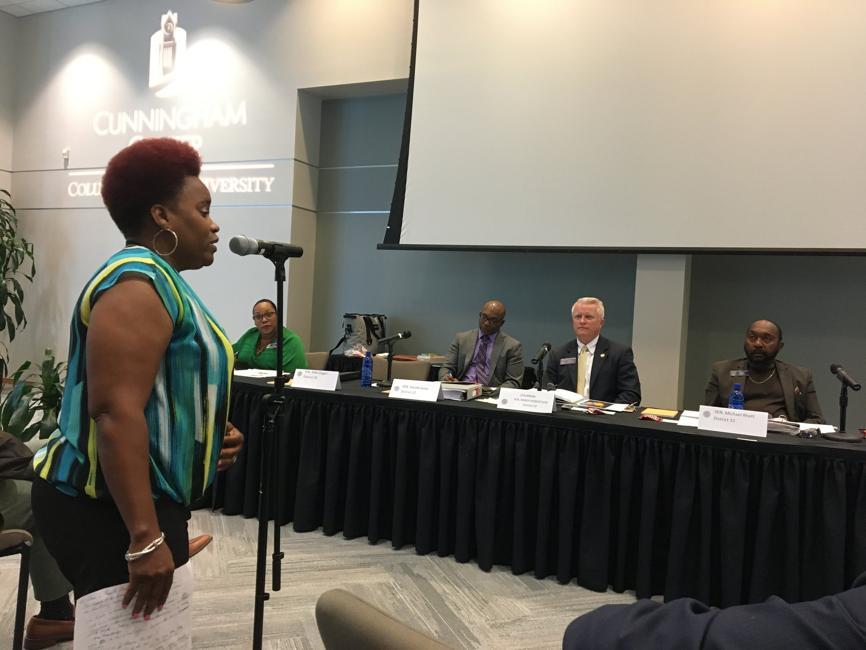Georgia Mulls Restoring Voting Rights To Nonviolent Felons
Georgia’s state legislature is considering whether to restore voting rights to certain classes of felons who have been released from prison – particularly those who were convicted of nonviolent crimes, according to AJC.

The discussions began on Friday, and lawmakers have yet to publicly define the threshold for what types of crimes committed by the state’s approximately 250,000 felons would qualify for the new law.
Georgia is one of 22 states that denies felons the ability to vote even after they’ve been released from prison, requiring them to also complete parole, probation and pay fines and fees.
State Sen. Randy Robertson, the chairman of a committee studying the issue, said it’s important for the Senate to evaluate whether felons should be able to vote. –AJC
“I would hope I’m not wasting my time today on something that’s fruitless,” said Robertson, a Republican from Cataula and a former sheriff’s deputy, after the committee’s meeting at Columbus State University. “Victims are going to have their voices heard, too. … Just starting the conversation is a big step forward.”
Advocating for felon voting rights are criminal justice groups and several senators, who agree that those convicted of drug possession should be able to vote once they’ve served their time in prison. Other nonviolent yet more serious offenses such as drug distribution, shoplifting and burglary are up for debate.
According to the report, some 80% of Georgia’s felons are already living in their communities while on probation or parole, according to Reform Georgia president Maxwell Ruppersburg.
“They paid their dues to society. Their sentence has been completed. If that’s true, why are we here having this discussion?” asked retired veteran Paulette Hunt, who spoke during Friday’s meeting. “Where is their justice? The punishment must fit the crime.”
All felons in Georgia are allowed to re-register to vote after they’ve finished all the conditions of their sentences, but that can take many years.
Probation sentences in Georgia last an average of 6.3 years, nearly double the national average, Ruppersburg said. –AJC
That said, perhaps sensing a Democrat scheme – Muscogee County Republican Committee chairman Alton Russell told senators that criminals lose their voting rights for a reason.
“If somebody commits a crime and they’re sentenced, they’ve earned the right not to vote,” said Russell.
Among the options Georgia lawmakers have are exempting drug possession felonies – which has been proposed under Senate Bill 11 introduced by Democratic state Senator Harold Jones. The measure is still pending in the Georgia Senate after it failed to receive a hearing this year.
Another option would be to pass a bill which would define the threshold for losing voting rights.
The Georgia Constitution says those who have been convicted of a “felony involving moral turpitude” can’t be registered to vote until their sentences are completed. But the state hasn’t defined which felonies involve “moral turpitude,” and election officials interpret the Constitution to mean that all felonies limit voting rights.
Another option for lawmakers would restore voting rights when felons are released from prison or jail but still owe fines or fees. –AJC
“I don’t see how you can say we’re going to take someone off the voting rolls when they’re productive citizens in every other sense of the word,” said Senator Jones.
The Senate committee will meet two more times this fall before a decision is made by December.
Tyler Durden
Mon, 09/23/2019 – 22:05
via ZeroHedge News https://ift.tt/2kJfexV Tyler Durden